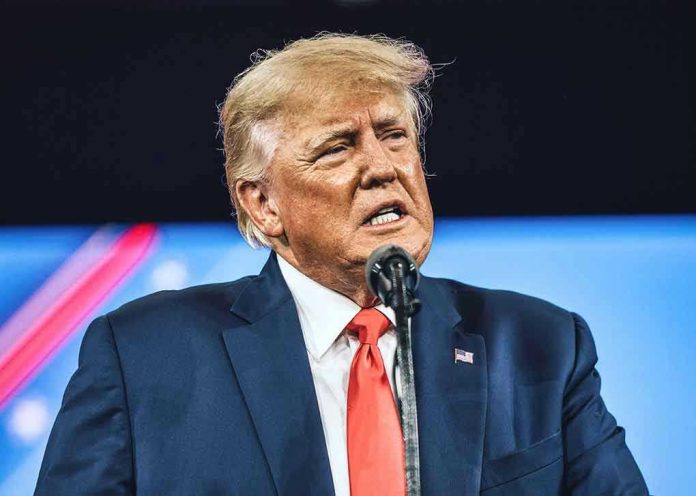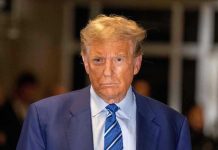
Bryce Mitchell, who once pledged to take a bullet for Donald Trump, now denounces him as the “Antichrist”—a stunning reversal that turns the spotlight on the volatile collision of celebrity, politics, and apocalyptic faith in America’s fighting cage.
Story Snapshot
- Bryce Mitchell’s transformation from Trump loyalist to fierce critic is shaking the UFC and political worlds alike.
- Mitchell invokes biblical prophecy to frame his reversal, labeling Trump “corrupted” and the “Antichrist.”
- The UFC’s growing political entanglements face new scrutiny as Mitchell refuses to attend a planned White House event.
- This episode exposes deep rifts within Trump’s base and the unpredictable risks of sports celebrity endorsements.
Bryce Mitchell’s Sudden U-Turn: From Ultimate Loyalty to Ultimate Condemnation
In 2023, UFC bantamweight Bryce Mitchell gained notoriety by swearing he’d “take a bullet and die” for Donald Trump if it meant keeping Kamala Harris out of the White House. His devotion made headlines, cementing his image as a fighter not just in the octagon but in the culture wars. Fast-forward to October 2025, and Mitchell’s Instagram video detonates that loyalty. He brands Trump as “corrupted,” accuses him of deceiving the country, and—most jaw-droppingly—calls him the “Antichrist,” citing Revelation 13:3. The dramatic pivot reverberates far beyond the UFC, sending a message that even the staunchest supporters might turn when faith and disillusionment collide.
Mitchell’s rationale for his break is as much theological as political. He accuses Trump of failing to release the Epstein files, sending aid to Israel and Ukraine, and scapegoating American beef farmers for inflation. But Mitchell’s attack goes further, referencing the Bible to frame Trump as a false savior—“the Antichrist”—warning fans to “read your Bibles” and stop following “false prophets.” This is not just political betrayal; it’s spiritual warfare, staged in the glare of the media spotlight. Mitchell’s use of scripture raises the stakes, turning his reversal into a public exorcism of his own past convictions.
The UFC’s Political Theater: Loyalty, Power, and the White House Card
Mitchell’s public about-face comes as the UFC, under President Dana White, tightens its embrace of Trump. Plans for a landmark event at the White House in June 2026 have been hyped as a celebration of the sport’s—and the president’s—mutual triumph. Mitchell, who once would have fought ringside for Trump, now refuses to attend, distancing himself from the very spectacle he once embodied. The UFC’s leadership, closely allied with Trump, has so far remained silent, perhaps hoping the controversy will pass quietly. But Mitchell’s defection throws a wrench in the narrative of a unified, pro-Trump fighting community, exposing cracks that could widen if other athletes decide to speak out.
Mitchell’s break is especially consequential because he isn’t just any fighter. His Arkansas roots and history of controversial, conspiratorial statements have made him a lightning rod in the MMA world. His willingness to invoke religious prophecy and conspiracy theories has previously drawn criticism and ridicule, but it also commands a dedicated following among fans who see themselves as outsiders and truth-tellers. When someone this committed turns, it raises questions: Who else might have doubts? And what does this mean for the UFC’s carefully curated political image?
🔥🚨NEW: Bryce Mitchell announces he no longer supports President Donald Trump, claims he’s actually the Anti-Christ and predicts the ‘mark of the beast’ is coming in 42 months. 👀
“I’m not with Donald Trump no more,” Mitchell said in a video posted to Instagram. “I don’t… pic.twitter.com/Af9G9GPuX7
— Parry Punch (@ParryPunchNews) October 24, 2025
The Ripple Effect: What Mitchell’s Reversal Means for Sports, Politics, and Faith
The immediate fallout centers on Mitchell’s social media, where his posts spark fierce debates among fans, pundits, and fellow fighters. Some dismiss him as always having been prone to wild rhetoric; others see his reversal as a sign of growing cracks in the Trump-aligned base. The UFC faces a dilemma: ignore the dissent, or risk a public spat that could alienate segments of its audience. Dana White’s silence leaves the situation tense and uncertain.
On a broader scale, Mitchell’s transformation is a cautionary tale for celebrity endorsements in the age of hyper-polarized politics. A fighter’s loyalty can become a liability overnight, especially when mixed with religious fervor and conspiracy. Other athletes and celebrities have shifted allegiances before, but rarely with such dramatic and theologically charged language. Mitchell’s example could embolden others to go public if their loyalties waver—or serve as a warning of the chaos that follows when belief becomes dogma, then turns to apostasy. For the UFC, the political theater continues, but with more moving parts and more unpredictable players than before.



